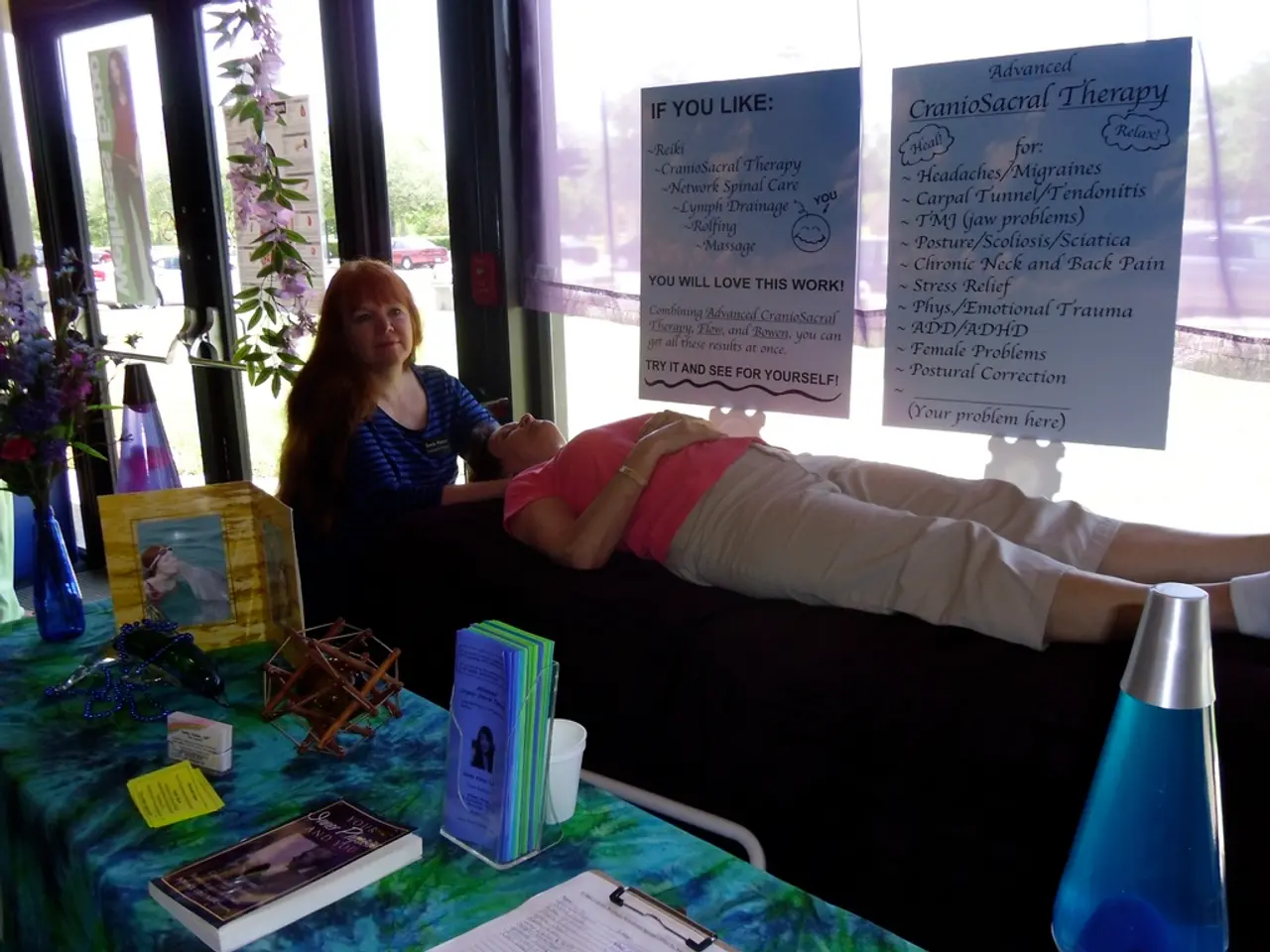Guide to Overcoming Solitude
In today's fast-paced society, loneliness has become a common experience for many individuals, affecting people of all ages and backgrounds. However, it is essential to remember that loneliness is a normal human emotion and can be overcome with time, effort, and the right strategies.
One of the key aspects in dealing with loneliness is self-care. Prioritising daily self-care, such as regular exercise, balanced nutrition, and adequate sleep, can boost mood and resilience against loneliness. Practising mindfulness and meditation helps manage negative thoughts and stay present, reducing feelings of loneliness. Setting personal goals and celebrating achievements builds confidence and purpose, counteracting loneliness. Building self-trust and self-compassion strengthens emotional resilience.
Another crucial element in coping with loneliness is building social connections. Joining social groups, clubs, or classes related to your interests fosters a sense of belonging and helps form new friendships. Volunteering in community service not only expands social circles but also provides a meaningful purpose, combating loneliness. Utilising technology thoughtfully, such as online communities and social media, can offer connection opportunities, especially for those with mobility or social anxiety issues. However, it's important to be mindful of excessive use and negative interactions. Reaching out to friends and family strengthens existing relationships and seeks emotional support, reducing isolation.
When loneliness becomes overwhelming, seeking professional help is an option. Individual or group therapy can address underlying causes of loneliness, such as social anxiety or depression, and develop coping strategies. Mental health support platforms, like BetterHelp, provide professional guidance and support when needed.
Crawford, a 35-year-old software engineer, experienced intense feelings of loneliness after moving to a new city for work. He joined a local hiking group to meet people who shared his love for the outdoors, building friendships and feeling more connected to his community. Crawford prioritised self-care, practicing mindfulness meditation to manage his emotions and develop a more positive outlook. He set personal goals, such as learning to play the guitar and volunteering at a local animal shelter, which gave him a sense of purpose and fulfillment outside of work.
In practice, combining these strategies can create a robust framework to overcome loneliness. Engaging in a hobby group supports your self-care routine by giving purpose and companionship, while therapy can help navigate emotional obstacles that hinder social engagement.
If loneliness persists or is accompanied by significant distress, seeking professional help is essential to ensure appropriate care and support. Embracing technology and virtual connections can help stay connected with others. Practising mindfulness and self-reflection can help better understand feelings and needs. Embracing solitude as an opportunity for personal growth and self-discovery can help build a stronger sense of self and feel more fulfilled in one's own company.
In summary, a comprehensive approach involving self-care, building social connections, and seeking professional help is recommended to effectively cope with and overcome loneliness in modern society. By prioritising self-care, building social connections, and seeking help when needed, individuals can navigate the journey of coping with loneliness and improve their overall well-being.
**Summary Table of Strategies**
| Aspect | Key Strategies | Benefits | |--------------------|----------------------------------------------------------------|---------------------------------------------| | Self-Care | Regular exercise, sleep, mindfulness, goal-setting | Improves mood, builds resilience | | Social Connections | Join groups/clubs, volunteer, maintain relationships, online communities | Reduces isolation, fosters belonging | | Professional Help | Therapy, counseling, online mental health support | Addresses underlying issues, provides support |
Science and health-and-wellness practices, such as regular exercise, balanced nutrition, and adequate sleep, play a significant role in managing loneliness by boosting mood and resilience. Education-and-self-development strategies like mindfulness, meditation, and setting personal goals help manage negative thoughts, build confidence, and provide a sense of purpose. These, combined with personal-growth initiatives like self-trust, self-compassion, and solitude as an opportunity for self-discovery, can lead to a more fulfilled life and effective coping with loneliness.




